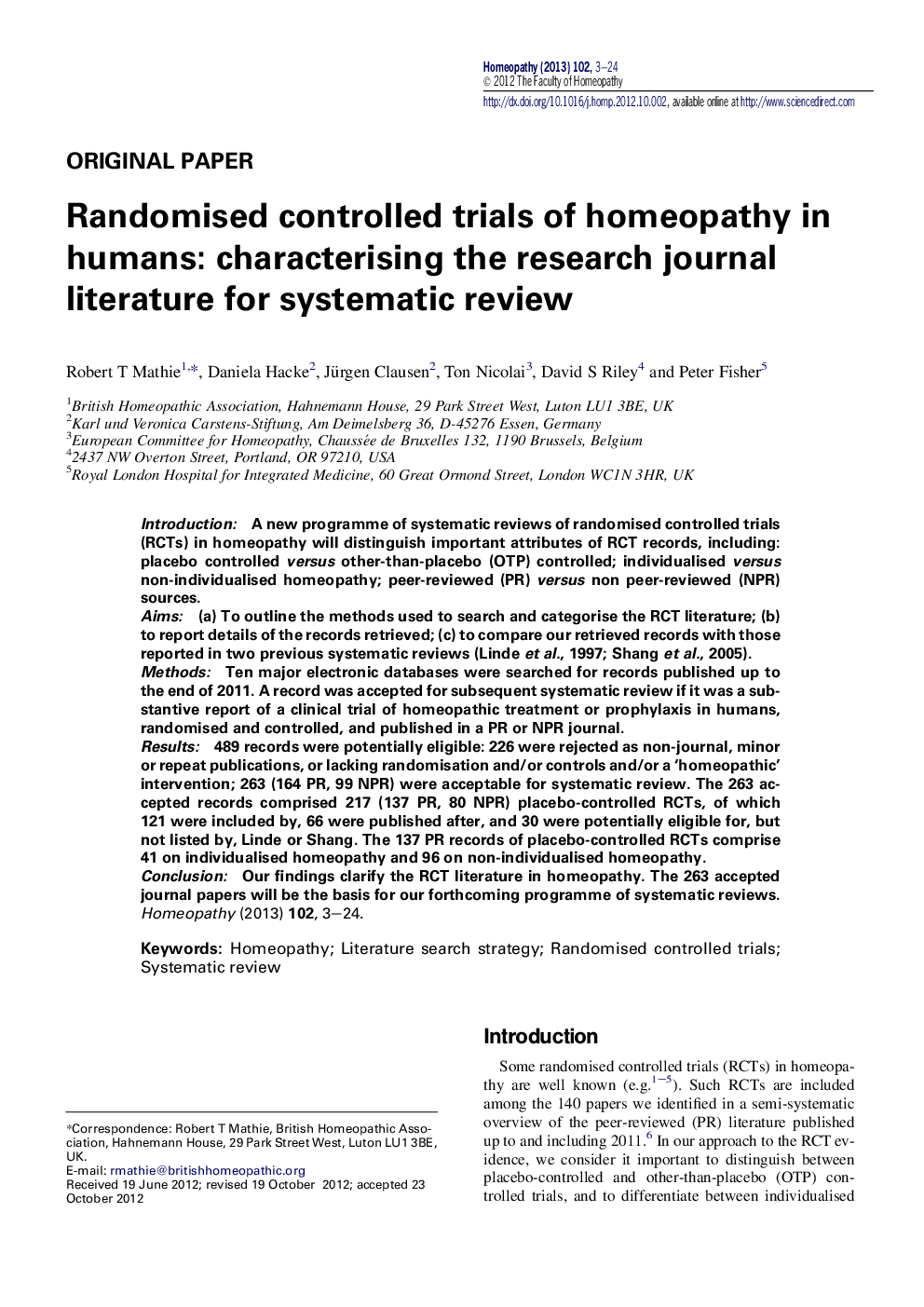| Article ID | Journal | Published Year | Pages | File Type |
|---|---|---|---|---|
| 2630047 | Homeopathy | 2013 | 22 Pages |
IntroductionA new programme of systematic reviews of randomised controlled trials (RCTs) in homeopathy will distinguish important attributes of RCT records, including: placebo controlled versus other-than-placebo (OTP) controlled; individualised versus non-individualised homeopathy; peer-reviewed (PR) versus non peer-reviewed (NPR) sources.Aims(a) To outline the methods used to search and categorise the RCT literature; (b) to report details of the records retrieved; (c) to compare our retrieved records with those reported in two previous systematic reviews (Linde et al., 1997; Shang et al., 2005).MethodsTen major electronic databases were searched for records published up to the end of 2011. A record was accepted for subsequent systematic review if it was a substantive report of a clinical trial of homeopathic treatment or prophylaxis in humans, randomised and controlled, and published in a PR or NPR journal.Results489 records were potentially eligible: 226 were rejected as non-journal, minor or repeat publications, or lacking randomisation and/or controls and/or a ‘homeopathic’ intervention; 263 (164 PR, 99 NPR) were acceptable for systematic review. The 263 accepted records comprised 217 (137 PR, 80 NPR) placebo-controlled RCTs, of which 121 were included by, 66 were published after, and 30 were potentially eligible for, but not listed by, Linde or Shang. The 137 PR records of placebo-controlled RCTs comprise 41 on individualised homeopathy and 96 on non-individualised homeopathy.ConclusionOur findings clarify the RCT literature in homeopathy. The 263 accepted journal papers will be the basis for our forthcoming programme of systematic reviews.
